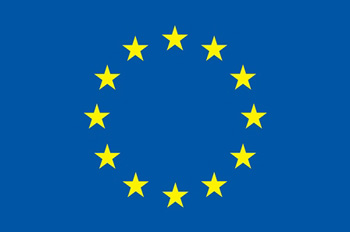Final Phase Negotiations with Iran: What Makes a Comprehensive Deal?
Our Work
On April 4th in the Capitol complex, The Lugar Center and the Arms Control Association hosted a Congressional staff lunch featuring George Perkovich, Director of the Nuclear Policy Program at the Carnegie Endowment for International Peace, and Michael Singh, Managing Director at the Washington Institute for Near East Policy. The speakers addressed the Final Phase negotiations with Iran and what should be included in any comprehensive deal.
Mr. George Perkovich, Director of the Nuclear Policy Program at the Carnegie Endowment for International Peace, argued that the United States should structure a final agreement around demonstrably practical requirements for a purely civilian nuclear program, include an Iranian commitment to put all of its nuclear facilities under safeguards, resolve IAEA concerns about “possible military dimensions, ” and include more-extensive transparency and verification procedures. Mr. Perkovich concluded by noting that Iran also has concerns, which tend to be neglected by Western governments and experts. Iranian leaders are skeptical that the United States will live up to its commitments. In particular, Iranian leaders doubt that they can rely on Washington to take all the steps necessary to remove pertinent sanctions on Iran at the national level and through the United Nations. Given that implementation of a final agreement would take place over several years, one must ask, how can Iran be assured that a future U.S. administration and Congress actually would lift sanctions?
Mr. Michael Singh, Managing Director at the Washington Institute for Near East Policy, argued that the U.S. shift away from zero enrichment to limited enrichment represents a significant diplomatic victory for Iran. Iran has no practical need for enrichment. It is blessed with abundant natural resources of oil and gas. Even if one accepts Tehran’s argument that it wants to diversify its energy supply, enriching uranium makes little sense as importing fuel is much more economical. Furthermore, allowing Iran to enrich complicates the task of verifying that Iran is not diverting ostensibly safeguarded material to a parallel, covert nuclear weapons program. Verifying nondiversion at every point along the supply chain is a formidable task. Allowing Iran to enrich also raises questions about broader U.S. policy on enrichment. Finally, permitting Iran to enrich will be seen as a defeat for Washington. At a time when U.S. influence in the Middle East is already low, the message to allies and adversaries alike would be one of diminishing U.S. will. Yielding on enrichment may hasten a nuclear agreement, but would threaten vital U.S. interests such as nonproliferation and regional stability.
Speakers:
- Mr. George Perkovich, Director, Nuclear Policy Program, Carnegie Endowment for International Peace
- "Crafting a Well-Rounded Nuclear Deal with Iran" in Arms Control Today, March 2014
- Mr. Michael Singh, Managing Director, Washington Institute for Near East Policy
- "The Case for Zero Enrichment in Iran" in Arms Control Today, March 2014

This project is funded in part by the European Union.

